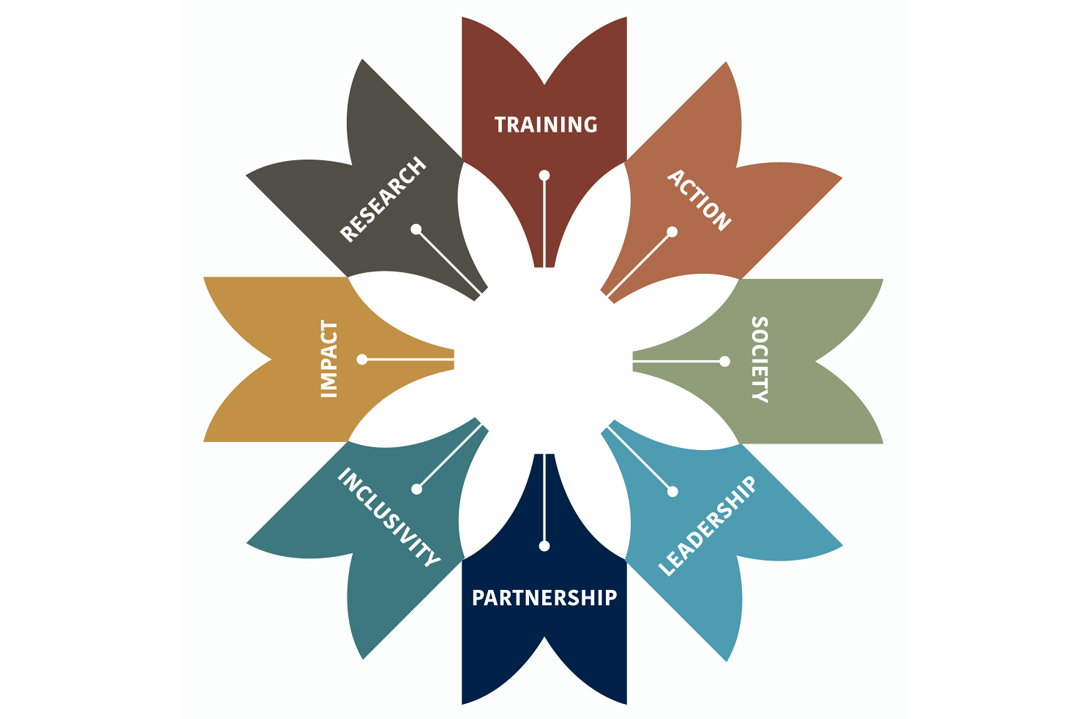Part of the University of Oxford’s Department of Biology, WildCRU plays a vital role in tackling the world’s biodiversity crisis by combining conservation research with action. Our approach is evidence-based, interdisciplinary and collaborative. Our work underpins conservation strategy, informs project implementation and supports policy change at local and international levels. Our members originate from more than forty countries and our work spans multiple continents, with the overarching aim of delivering positive local impacts for both people and wildlife.
OUR MISSION AND APPROACH
To transform wildlife conservation through world-class research, training and implementation.
The WildCRU rosette illustrates the eight key pillars of our approach:

RESEARCH: WildCRU conducts cutting-edge, original research to inform conservation based on excellent science
TRAINING: We train and support professional development of conservation scientists and practitioners around the world
ACTION: We run and support projects, engaging diverse groups in long term, effective conservation
SOCIETY: We integrate science into decision making across public and private sectors
LEADERSHIP: We nurture a robust, global conservation leadership network
PARTNERSHIP: We develop and strengthen partnerships to achieve practical conservation success
INCLUSIVITY: Our work fully considers, engages and represents diverse stakeholders to deliver robust outcomes
IMPACT: Evaluating and tracking our conservation impact is integral to our work.
RESEARCH
As scientists, we take a data-driven approach to developing and implementing effective conservation solutions. Our research covers a wealth of topics, species and landscapes, reflecting the breadth of conservation challenges faced across the world.
TRAINING
WildCRU trains and supports the professional development of conservation scientists and practitioners around the world. This is always a two-way process, in which we learn from the experience and insight of all participants.
Impact
WildCRU is currently involved in over fifty species and landscape conservation initiatives at country, continent and global levels with a corresponding diversity of aims. Evaluating our conservation impact is integral to our work.
THE WILDCRU TEAM
WildCRU members originate from more than forty countries and include researchers, students, research visitors and professional staff. A core team is based in Oxford with many members conducting fieldwork around the world at any one time. Professor Amy Dickman is WildCRU Director, and Dr Darragh Hare and Emma Knott are Deputy Directors.